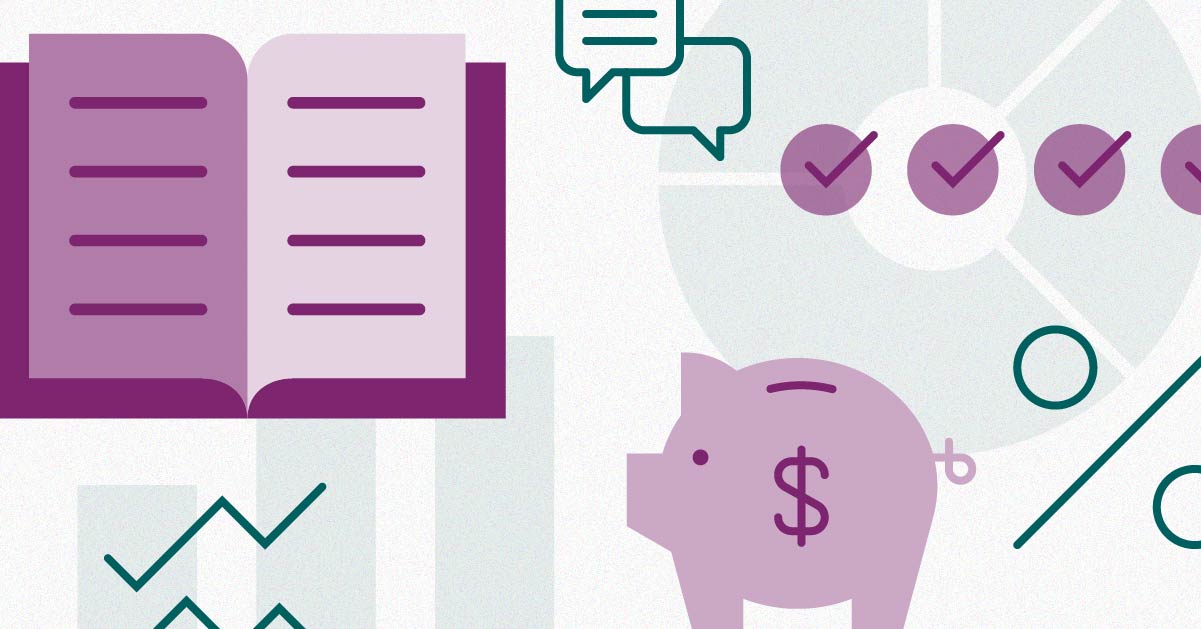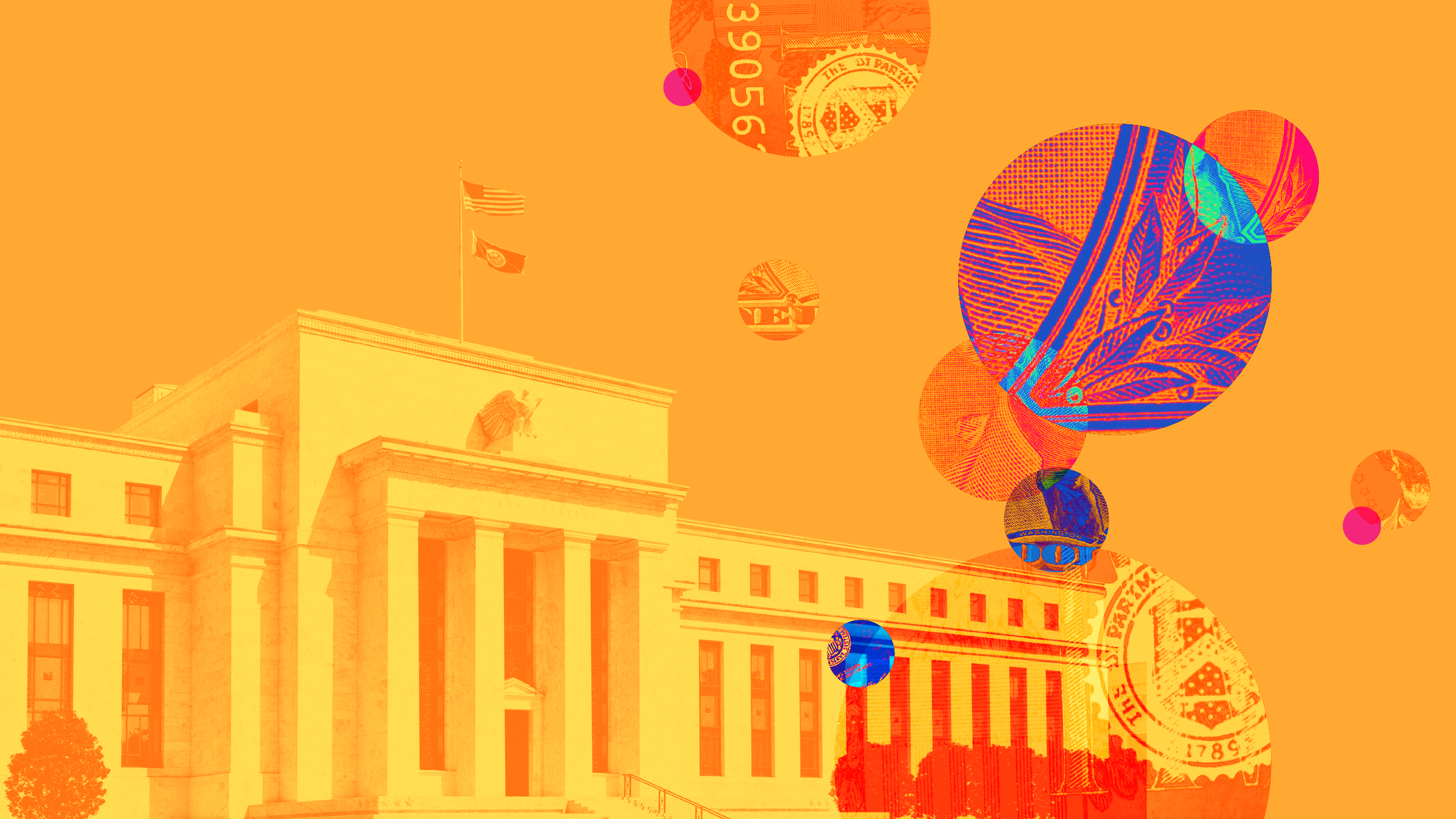Thanks for taking part in our quiz, now let's explain what it all means.
How ETFs Can Make You a Better Investor
For decades, financial theories were based on the assumption that all market participants were rational decision makers, acting in their own self-interest. This simplifying assumption led to great insights like Harry Markowitz’s Modern Portfolio Theory and practical applications like index funds with their low costs and difficult-to-beat returns. However, recent academic work has focussed on a more realistic view of the market where investors often act irrationally, as many economists felt that the previous economic framework insufficiently described what they observed in reality. It doesn’t take a PhD to realise that humans make mistakes.
Building upon the findings of academics such as Daniel Kahnemann and Amos Tversky, behavioural finance attempts to bridge the gap between neoclassical economics and the real world by dropping the simplifying assumption that all investors are perfectly rational. Instead it seeks to discover how common mental errors, or cognitive biases, affect the market. As you can imagine, humans make dozens if not hundreds of types of errors in assessing the world around them. These errors can lead to suboptimal investment decisions, costing investors millions, maybe billions. But by recognising and being aware of these errors, you can take steps to avoid making these common mistakes in your own portfolio.
Typical Mental Errors that Investors Make
Many of the most common cognitive biases of investors can be classified into three broad categories: Probability Errors, Oversimplification Errors, and Errors of Optimism. In many cases, errors are made due to a combination of different biases.
Probability Errors
These are not errors of calculation, but rather cognitive biases that cause people to judge the probability of an event incorrectly (often because of stresses such as a short timeframe), when they would normally be perfectly capable of calculating the correct probability. This crops up often when investors try to time the market by looking at a chart of past asset prices. Humans instinctively will see a pattern when in fact market movements tend to be random. The tendency to extrapolate the current trend in the market is also closely related, and judging by the large inflows that last year’s top performing funds tend to accumulate, it is just as common. Unfortunately for those investors, last year’s top performers have little or no relation to next year’s top performers because of mean reversion.
Oversimplification Errors
Often, people have to make decisions quickly, under stressful circumstances that do not allow them to gather all of the required data to make the optimal decision. In these situations, we will often rely on heuristics, or simplified mental models that will tend to give us a good-enough answer. While this was an optimal strategy when mankind was roaming the Serengeti, in modern times it can lead us astray.
Groupthink occurs when people strive for consensus and so avoid thinking their way through an issue which might lead to a different answer than the group. Obviously, anything that prevents independent thought can be disastrous in investing. Following the herd can create a feedback loop which helps explain the occurrence of market bubbles and crashes. Anyone who bought real estate with the intention of flipping it in the past few years because they saw neighbours getting rich doing it are guilty of this error, and paid the price.
The affect heuristic is our inability to treat separate traits on a single idea or item different qualitatively. A survey showed that unfamiliar stocks that were perceived as ‘good’ were expected to have low risk and high returns, while stocks perceived as ‘bad’ were expected to have high risk and low return, even though one of the principles of finance is that higher risk means higher expected return. And this survey was conducted on equity analysts, a group which should really know better. Interestingly, for more familiar stocks the analysts did equate high risk with high returns and vice-versa. The way to avoid this error is to do your homework.
Errors of Optimism
Also known as ‘wishful thinking’, this is the tendency of people to look at the world through rose-tinted glasses.
Experiments and everyday life show that people will go through the most torturous mental gymnastics to avoid cognitive dissonance, the discomfort you feel when simultaneously holding two contradicting ideas or beliefs in your head. For instance, while smokers are no less concerned about their health than non-smokers, instead of changing their behaviour, which is difficult, they resolve the issue with statements like, “I’ll quit next month,” or “If smoking doesn’t kill me, something else will.” Humans may not be rational, but we do rationalise. A similar principle is at play when an investor chooses between two investments: regardless of their subsequent performance, investors will after-the-fact come up with reasons why they made the right choice, and this will deter them from acknowledging a mistake and cutting their losses.
Another bias that should come as no surprise is our overconfidence--a belief in our own abilities much greater than is warranted. This manifests itself in investors trading too frequently, not only incurring greater fees than necessary but also selling and buying precisely the wrong investments.
An Imaginary Dialogue
A potential conversation about the 2008-2009 market can illustrate the many cognitive biases that investors can be guilty of.
“I saw the 2008 market crash coming a mile off.”
“Really? Because that seems like hindsight bias. It’s easy to say that now.”
“No, really, I sold my investments before the market tanked.”
“Did you really sell everything, or is it just choice-supportive bias (the tendency to remember good decisions and forget poor ones)?”
“Yes, it worked out well for my portfolio.”
“Well, that’s simply outcome bias, you couldn’t have known that at the time. Anyway, did you buy back at the bottom and make even more money?”
“No, the rally is completely irrational.”
“Sounds like sour grapes to me!”
“Of course not, I know what I’m doing.”
“Ha! You’re just overconfident.”
While just about anyone would want to inflict some bodily harm on the second investor--and justifiably--we can all probably recall someone who made comments similar to the first investor.
How You Can Use ETFs to Overcome These Mental Errors
How can investors overcome the adverse financial impact of these universal biases? Given the multitude of different possible errors, it’s impossible to avoid them all, but we can limit their impact by taking decisions out of our error-prone hand. While the underlying biases vary, for investors the symptoms generally manifest themselves as too much trading activity. Not only does excess trading increase costs, but multiple studies show that investors trade at exactly the wrong times, buying high and selling low as greed and fear dominate decision making instead of logic. To combat this problem, many brokers and advisers will allow you to set up automatic investment plans including ETFs, where you can specify a specific amount to be invested monthly, rain or shine. This will take emotions out of the picture completely, and has the benefit of cost averaging as well, where more shares are bought when prices are low.
ETFs are also a great tool for asset allocation, which will help you to diversify your portfolio and avoid making speculative bets on any one asset class or market sector. Passive investors are basically free riders who benefit from the value identification efforts of active investors, but without the additional costs. Low fee ETFs are a great tool for taking advantage of this fact.
This is just a small sample of the many cognitive biases identified by researchers; click here for more. While the large number of possible biases makes it impossible to always avoid committing errors, the important thing is to consistently avoid the biggest mistakes that will cost you the most money. Creating a plan for your portfolio and sticking to it will help you go a long way towards realising your financial goals.
























